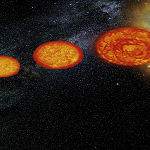The people of Angola did something last week that they had not done for a long time: They elected a new president. The winning candidate, João Lourenço, will take over from President José Eduardo dos Santos, who came into office in 1979. Lourenço, who is from the same party as dos Santos, the People’s Movement for the Liberation of Angola, received two thirds of the vote. That result is expected to stand, despite doubts about the count voiced by his opponents.
During the first two decades of dos Santos’ rule, Angola struggled with a deadly, on-again, off-again civil war. After the MPLA prevailed in 2002, Angola embarked on a peace-and-oil expansion, with GDP growing by an astonishing 22 percent in 2007 alone. The global financial crisis brought the Angolan economy back to earth, however. The following chart, from the latest FocusEconomics Consensus Forecast for Sub-Saharan Africa, details the slowdown. Not only has the growth of GDP slowed, but so have analysts’ estimates of future growth. Low oil prices, and the expectation that they will remain low for the foreseeable future, are a major factor behind the growth pessimism.

Angola’s per capita GDP, estimated at purchasing power parity, was $7,344 in 2016, ahead of Nigeria, the region’s largest oil exporter, although barely half that of South Africa. However, the country’s social indicators are low for a country of its level of GDP. One of the best summary measures is the Social Progress Index (SPI), which combines scores of health, living standards, education, personal securities, and personal freedoms. The following chart compares the SPI to GDP per capita for 131 countries around the world. Although, on average, social indicators tend to improve as GDP per capita rises, Angola’s SPI falls far below the trendline.

The combination of poor social indicators combined with resource wealth is often called the “curse of riches.” Oil exporting countries, Angola included, are especially vulnerable. Extensive corruption is another characteristic of the curse of riches. Angola ranks a dismal 164th out of 176 countries on Transparency International’s Corruption Perception Index.












Leave A Comment